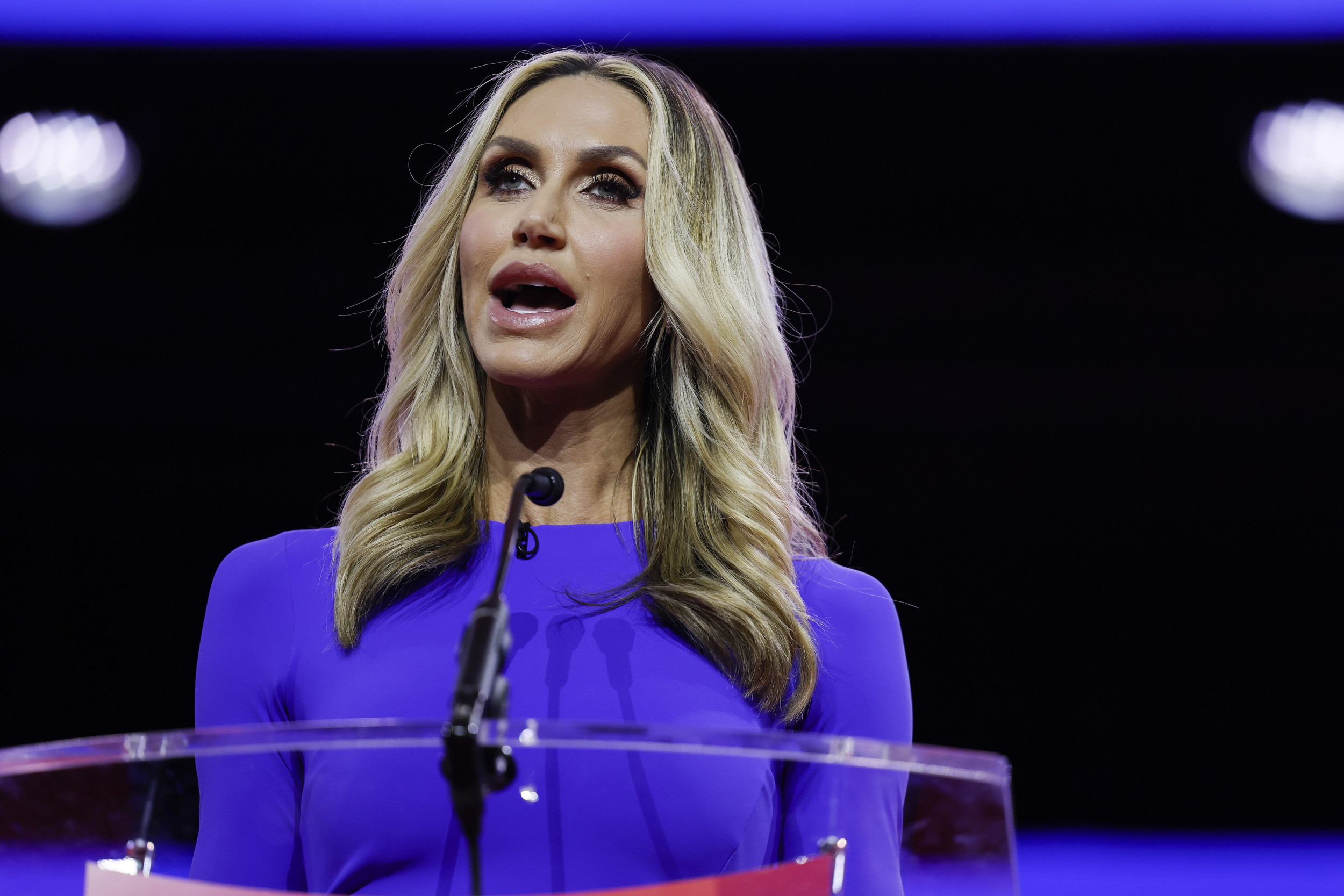Lara Trump Rails Against Spread of Spanish in US: 'We Speak English Here'
Former President Donald Trump 's daughter-in-law, Lara Trump, raged during an interview on NewsNation that migrants coming to the United States from South and Central America are "flooding" the U.S. education system with Spanish.
The ex-television producer, who is married to the former president's second-eldest son, Eric Trump , spoke with NewsNation's Eric Bolling on Monday about the recent riots in Dublin that broke out after an Algerian man was identified as the suspect behind the stabbing of five individuals, including three children. The violent protests were led by anti-immigration demonstrators who Irish police said were motivated by "far-right ideology."
Bolling specifically asked Trump about her opinions on statements made by Irish UFC fighter Conor McGregor a day before the riots broke out. McGregor has faced backlash after posting to social media that Ireland was "at war" and said that his country's immigration policies show "the lack of care" that officials "have for the common Irish citizen."
The statements have also sparked an investigation by the Gardai—Ireland's national police force—into allegations that McGregor incited hatred through his posts, according to a report by the Irish Mirror.
Lara Trump on March 3, 2023, in National Harbor, Maryland. The daughter-in-law of ex-President Donald Trump said in an interview on Monday that migrants crossing into the U.S. over the southern border are "flooding" the U.S. education system with Spanish. Anna Moneymaker/"This is all the more reason that people are now starting to wake up," Trump told Bolling, saying that the situation in Ireland is an example of the threats that the crisis along the U.S. southern border poses to the American public.
"I mean, borders matter," she added later in the interview. "And you know, it's funny because at one time, the borders of this country did matter to those in charge. Borders of a country like Ireland matter as well. And we have our own unique system and way of doing things; We need to know who's coming into our country."
"I mean, you have to be part of a society whenever you become a citizen of another country," Trump continued. "And I think now people are starting to see in a lot of even school systems right now where they're teaching things in English and they're teaching them in Spanish, because we have had so many people coming from South America, from Central America, from Mexico, and just kind of flooding our education system, that they have to have a way to teach these kids."
"I mean, this is the United States of America," she added. "We speak English here."
Donald Trump made similar statements during his 2016 presidential campaign, including criticizing ex-Florida Gov. Jeb Bush for speaking Spanish while on the campaign trail ahead of the GOP presidential primary that year.
"I do mean it to a large extent, we have a country where to assimilate, you have to speak English," Donald Trump said during a Republican primary debate in September 2015.
"We have to have assimilation to have a country," he added.
In a phone call with Newsweek on Tuesday, Domingo Garcia, president of the League of United Latin American Citizens, said that Trump's comments were an example of politicians engaging in "fear-mongering" and using "scapegoating of immigrants for political purposes."
"The fact of the matter is, for example, I'm in Texas," Garcia said. "Schools are paid by property taxes. Every person in Texas—undocumented, U.S. citizen—pays property taxes, whether you rent or own property that pays for schools....Immigrants are paying their fair share of school property taxes across the country.
"Number two, Spanish was the first European language spoken in the Americas, therefore it's not a foreign language. It's American as apple pie and margaritas and fajitas."
According to data compiled by the U.S. Census Bureau, nearly 68 million people—roughly one in five people in the country—spoke a language other than English at home in 2019, with Spanish the most common. Hispanics also became the largest U.S. minority group in 2020, according to the agency, accounting for 37 million people.
"Being bilingual in a world marketplace—especially with the United States having our largest trading partner, Mexico, next door, as well as Latin America—gives a key advantage in our economy, and it gives advantages to all of those who are bilingual and access the world marketplace," Garcia added.










